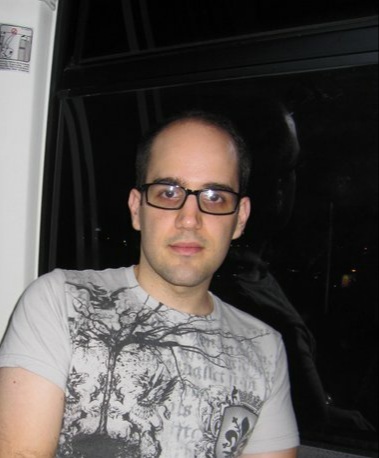I obtained my MSc at the University of Windsor, where I attempted to better understand the protein-protein interaction between heat shock protein 70 and the dual specificity phosphatase DUSP12. After graduating, I joined the labs of Dr. Peter Rogan and Dr. Joan Knoll as a Research Technician. Over 13 years, I lead multiple projects which included the discovery of common mRNA splice-altering single nucleotide polymorphisms, the prioritization of coding and non-coding mutations observed in breast cancer genes in tumor patients, the analysis of the RNAseq data from >10,000 patients in TCGA and ICGC in order to identify splice altering mutations, the development of gene expression-based chemotherapy and radiation response models using machine learning, and using geostatistical analysis to identify COVID-19 hotspots in Ontario at high-resolution from March 2020 to June 2021.
Research Interests:
My recent research has been focused on utilizing both laboratory and bioinformatic techniques to identify and interpret of the effect of novel DNA variants, confirm predicted aberrant mRNA splicing events (using both qPCR and RNA sequencing data), and to build machine learning-based chemotherapy and radiation response models.
Education:
2005 – 2007, Master of Science in Biochemistry, Department of Chemistry and Biochemistry, University of Windsor
Selected Publications:
• Mucaki EJ, Shirley BC and Rogan PK. Likely community transmission of COVID-19 infections between neighboring, persistent hotspots in Ontario, Canada [version 1; peer review: awaiting peer review]. F1000Research 2021, 10:1312. doi: https://doi.org/10.12688/f1000research.75891.1
• Mucaki EJ, Shirley BC, Rogan PK. Improved radiation expression profiling in blood by sequential application of sensitive and specific gene signatures. Int J Radiat Biol. 2021. 1-18. doi: 10.1080/09553002.2021.1998709
• Rogan PK, Mucaki EJ, Lu R, Shirley BC, Waller E, Knoll JHM. Meeting radiation dosimetry capacity requirements of population-scale exposures by geostatistical sampling. PLoS One. 2020. 15(4):e0232008. doi: 10.1371/journal.pone.0232008
• Bagchee-Clark AJ, Mucaki EJ (shared first authorship), Whitehead T, Rogan PK. Pathway-extended gene expression signatures integrate novel biomarkers that improve predictions of patient responses to kinase inhibitors. MedComm. 2020. 1: 311– 327. doi: 10.1002/mco2.46
• Mucaki EJ, Shirley BC, Rogan PK. Expression Changes Confirm Genomic Variants Predicted to Result in Allele-Specific, Alternative mRNA Splicing. Front Genet. 2020. 11:109. doi: 10.3389/fgene.2020.00109
• Shirley BC, Mucaki EJ, Rogan PK. Pan-cancer repository of validated natural and cryptic mRNA splicing mutations. F1000Res. 2018. 7:1908. doi: 10.12688/f1000research.17204.3
• Mucaki EJ, Zhao JZL, Lizotte DJ, Rogan PK. Predicting responses to platin chemotherapy agents with biochemically-inspired machine learning. Signal Transd Target Ther. 2019. 4:1. doi: 10.1038/s41392-018-0034-5
• Zhao JZL, Mucaki EJ, Rogan PK. Predicting ionizing radiation exposure using biochemically-inspired genomic machine learning. F1000Res. 2018. 7:233. doi: 10.12688/f1000research.14048.2 Mucaki EJ, et al. A unified analytic framework for prioritization of non-coding variants of uncertain significance in heritable breast and ovarian cancer. BMC Med Genomics. 2016. 9:19. doi: 10.1186/s12920-016-0178-5
